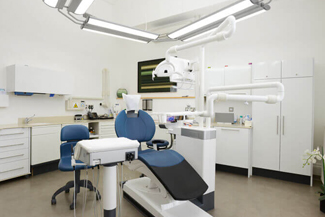When it comes to the world of dental care, preventive treatments usually revolve around stopping those common dental nuisances that cause pain and swelling – cavities.

And while there are a few lucky folks who have never had a cavity, if you have a filling, a crown or have needed a root canal during your life, the chances are that you have had one at some point, even if it wasn’t uncomfortable.
As technologies have advanced, dental practitioners are now more equipped to prevent initial signs of decay from developing into cavities, meaning that as long as you attend six monthly check-ups, there may be no need for you to have a filling again.
At Harley Street Dental Clinic, we are on the frontline of preventive treatments for both cavities and gum disease, meaning that when you visit our dentist W1, you are receiving the best treatment that money can buy to keep your mouth healthy. What more could you want from a dental team?
But back to cavities; what are they and why do they cause so much trouble? Our dentist W1 answers these questions and more below.
Why are cavities brown?
In short, cavities are brown because they are exposed areas of dentine which are darkened due to bacteria.
As bacteria accumulate on the surface of your teeth (plaque), they begin to dissolve the enamel of your teeth and form holes (cavities). Underneath the enamel is the dentine, which is usually yellow in colour, but with the bacteria now latching onto it, it changes colour and becomes more obvious.
Why does tooth decay smell bad?
Tooth decay creates a sulphurous or bad smell due to the enamel and dentine being broken down. As the bacteria consume these substances, they release a gas into your mouth that creates the unpleasant odour that occurs with cavities and rotten teeth.
What happens if a rotten tooth is left untreated?
If our dentist W1 does not see you for your biannual check-ups, then that tiny cavity is likely to grow, either externally or internally; usually both!
Externally, the brown spot will become bigger as the enamel is destroyed and sadly, no amount of brushing can slow the process, so you will need to see our team as soon as you spot a cavity. Internally, the bacteria will burrow into the dentine until they reach the pulp. Once there, the bacteria can cause infections and abscesses.
How will your team treat a rotten tooth?
This depends on the extent of the decay; if it is minor, we may be able to prevent it spreading with a clean and the application of a sealant.
If it is more extreme, a filling or crown will be used. If there is an infection, a root canal may be warranted and in the worst-case scenario, we will extract the rotten tooth.
How do you prevent rotten teeth?
By brushing and flossing twice a day, attending dental check-ups with us every six months and by refraining from overconsumption of sugary sweets and drinks.
